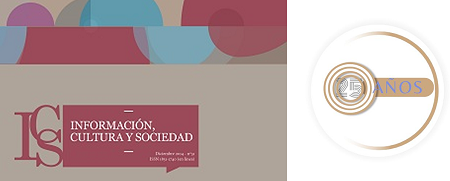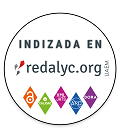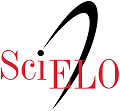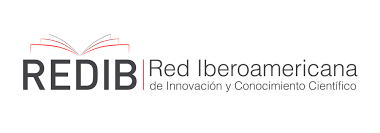Open access in Argentina. A proposal for tracking scientific publications with OpenAlex
Abstract
This study proposes a methodology using OpenAlex (OA) for tracking Open Access publications in the case of Argentina, a country where a self-archiving mandate has been in effect since 2013 (Law 26.899, 2013). A sample of 167,240 papers by researchers from the Consejo Nacional de Investigaciones Científicas y Técnicas (CONICET) was created and analyzed using statistical techniques. We estimate that OA is able to capture between 85-93% of authors for all disciplines, with the exception of Social Sciences and Humanities, where it only reaches an estimated 47%. The availability of papers in Open Access was calculated to be 41% for the period 1953-2021 and 46% when considering exclusively the post-law period (2014-2021). In both periods, gold Open Access made up the most common route. When comparing equal periods post and pre-law, we observed that the upward trend of gold Open Access was pre-existing to the legislation and the availability of closed articles in repositories increased by 5% to what is estimated based on existing trends. However, while the green route has had a positive evolution, it has been the publication in gold journals that has boosted access to Argentine production more rapidly. We concluded that the OA-based methodology, piloted here for the first time, is viable for tracking Open Access in Argentina since it yields percentages similar to other national and international studies. ARK CAICYT: http://id.caicyt.gov.ar/ark:/s18511740/kbeybalrvDownloads
References
Alperin, Juan Pablo. 2022. Why I think ending article-processing charges will save open access. En Nature. Vol. 610, no. 7931, 233–233. <https://doi.org/10.1038/d41586-022-03201-w>
Archambault, Éric, Didier Amyot, Philippe Deschamps, Aurore Nicol, Françoise Provencher, Lise Rebout y Guillaume Roberge. 2014. Proportion of open access papers published in peer-reviewed journals at the European and world levels—1996–2013. European Commision. <https://science-metrix.com/sites/default/files/science-metrix/publications/d_1.8_sm_ec_dg-rtd_proportion_oa_1996-2013_v11p.pdf>[Consulta: 10 septiembre 2023].
Babini, Dominique y Laura Rovelli. 2020. Tendencias recientes en las políticas científicas de ciencia abierta y acceso abierto en Iberoamérica. Caba: CLACSO; Fundación Carolina. (Ciencia Abierta). <http://biblioteca.clacso.edu.ar/clacso/se/20201120010908/Ciencia-Abierta.pdf> [Consulta: 10 septiembre 2023].
Becerril-García, Arianna y Saray Córdoba Gónzalez, ed. 2021. Conocimiento abierto en América Latina: trayectoria y desafíos. Caba: CLACSO. <https://doi.org/10.2307/j.ctv2v88f34>
Beigel, Fernanda y Osvaldo Gallardo. 2021. Productividad, bibliodiversidad y biolingüismo en un corpus completo de producciones científicas. En Revista Iberoamericana de Ciencia, Tecnología y Sociedad. Vol. 16, no. 46, 41-71. <http://www.revistacts.net/contenido/numero-46/productividad-bibliodiversidad-y-bilinguismo-en-un-corpus-completo-de-producciones-cientificas/> [Consulta: 10 septiembre 2023].
Beigel, Fernanda, Abel L. Packer, Osvaldo Gallardo y Maximiliano Salatino. 2022. OLIVA: a transversal analysis of indexed scientific production in Latin America. Disciplinary diversity, institutional collaboration, and multilingualism in SciELO and Redalyc. En SciELO Preprints. <https://doi.org/10.1590/SciELOPreprints.2653>
Beigel, Fernanda, Ana María Almeida, Osvaldo Gallardo, Luciano Digiampietri, Soledad Gomez, Marcia Rangel Candido, Alejandra Ciriza, Pia Rossomando, Marilia Moschkovich y Mario Pecheny. 2023. Scientific Production and Gender Inequalities in Two Academic Elites: Brazil and Argentina. En Revue d’histoire des sciences humaines. No. 42, 255-280. <https://doi.org/10.4000/rhsh.8374>
Bernal, Isabel y Juan Román Molina. 2022. Midiendo el nivel de cumplimiento del Mandato CSIC de acceso abierto: el Portal Monitor. En Enredadera: Revista de la Red de Bibliotecas y Archivos del CSIC. No. 37, 73–79. <https://doi.org/10.20350/digitalCSIC/14539>
Budapest Open Access Initiative BOAI. 2002. <https://www.budapestopenaccessinitiative.org/> [Consulta: 10 septiembre 2023].
Bongiovani, Paola y Sandra Miguel. 2019. ¿Cuán abierta es la producción científica de los investigadores argentinos de Ciencias Sociales? En Palabra clave. Vol. 9, no. 1, e80. <https://doi.org/10.24215/18539912e080>
Borrego, Ángel. 2022. Indicadores de medición del acceso abierto: fuentes y herramientas. En Anuario ThinkEPI. Vol. 16, e16a18. <https://doi.org/10.3145/thinkepi.2022.e16a18>
Butler, Leigh-Ann, Lisa Matthias, Marc-André Simard, Phil Mongeon y Stefanie Haustein. 2022. The oligopoly’s shift to open access publishing: How for-profit publishers benefit from gold and hybrid article processing charges. En Proceedings of the Annual Conference of CAIS / Actes Du congrès Annuel De l’ACSI. <https://doi.org/10.29173/cais1262>
Comité Asesor en Ciencia Abierta y Ciudadana. 2022. Diagnóstico y lineamientos para una política de ciencia abierta en Argentina. <https://www.argentina.gob.ar/sites/default/files/2023/01/documento_final_comite_cayc_-_dic_22.pdf> [Consulta: 10 septiembre 2023].
Córdoba González, Saray. 2021. Cobrar por publicar en revistas académicas. Una amenaza al ecosistema latinoamericano no comercial. En Becerril-García, Arianna y Saray Córdoba Gónzalez, ed. Conocimiento abierto en América Latina: trayectoria y desafíos. Caba: CLACSO. p. 175-200. <https://doi.org/10.2307/j.ctv2v88f34>
Culbert, Jack, Anne Hobert, Najko Jahn, Nick Haupka, Marion Schmidt, Paul Donner y Philipp Mayr. 2024. Reference Coverage Analysis of OpenAlex compared to Web of Science and Scopus. En arXiv. <http://arxiv.org/abs/2401.16359> [Consulta: 10 septiembre 2023].
De Volder, Carolina. 2008. Los repositorios de acceso abierto en Argentina: situación actual. En Información, cultura y sociedad. No. 19, 79-98. <http://www.scielo.org.ar/scielo.php?script=sci_arttext&pid=S1851-17402008000200005&lng=es&tlng=es> [Consulta: 10 septiembre 2023].
Debat, Humberto y Dominique Babini. 2020. Plan S in Latin America: A Precautionary Note. En Scholarly and Research Communication. Vol. 11, no. 1, 0101347. <https://doi.org/10.22230/src.2020v11n1a347>
Delgado López-Cózar, Emilio, Enrique Orduna-Malea y Alberto Martín-Martín. 2019. Google Scholar as a data source for research assessment. En Glaenzel, Wolfgang, Henk Moed, Ulrich Schmoch y Michael Thelwall, ed. Springer handbook of science and technology indicators. Berlin: Springer. <https://arxiv.org/ftp/arxiv/papers/1806/1806.04435.pdf> [Consulta: 10 septiembre 2023].
European Commission, Directorate-General for Research and Innovation. 2021. Monitoring the open access policy of Horizon 2020: final report. Publications Office. <https://data.europa.eu/doi/10.2777/268348> [Consulta: 10 septiembre 2023].
Fushimi, Marcela, Mónica Pené, Ana María Sanllorenti y Carolina Unzurrunzaga. 2021. Repositorios universitarios argentinos en coyuntura: desarrollo y perspectivas de sus gestores. En Ciencia, docencia y tecnología. Vol. 32, no. 62. <http://dx.doi.org/10.33255/3262/924>
Harzing, Anne Wil. 2019 Two new kids on the block: How do Crossref and Dimensions compare with Google Scholar, Microsoft Academic, Scopus and the Web of Science? En Scientometrics. Vol. 120, 341-349. <https://doi.org/10.1007/s11192-019-03114-y>
Hobert, Anne, Najko Jahn, Philipp Mayr, Birgit Schmidt y Niels Taubert. 2021. Open access uptake in Germany 2010–2018: adoption in a diverse research landscape. En Scientometrics. Vol. 126, 9751–9777. <https://doi.org/10.1007/s11192-021-04002-0>
Huang, Chun-Kai (Karl), Cameron Neylon, Richard Hosking, Lucy Montgomery, Katie S Wilson, Alkim Ozaygen y Chloe Brookes-Kenworthy. 2020. Meta-Research: Evaluating the impact of open access policies on research institutions. En eLife. Vol. 9, e57067. <https://doi.org/10.7554/eLife.57067>
Jeangirard, Eric. 2019. Monitoring Open Access at a national level: French case study. En ELPUB 2019. 23rd International Conference on Electronic Publishing (23°: Junio 2019: Marseille, France). <https://doi.org/10.4000/proceedings.elpub.2019.20>
Jiao, Chenyue, Kai Li y Zhichao Fang. 2023. How are exclusively data journals indexed in major scholarly databases? An examination of four databases. En Scientific Data. Vol. 10, 737. <https://doi.org/10.1038/s41597-023-02625-x>
Khanna, Saurabh, Jon Ball, Juan Pablo Alperin y John Willinsky. 2022. Recalibrating the scope of scholarly publishing: A modest step in a vast decolonization process. En Quantitative Science Studies. Vol. 3, no. 4, 912–930. <https://doi.org/10.1162/qss_a_00228>
Larivière, Vincent y Cassidy R. Sugimoto. 2018. Do authors comply when funders enforce open access to research? En Nature. Vol. 562, 483-486. <https://doi.org/10.1038/d41586-018-07101-w>
Ley 26.899. 2013. Repositorios digitales institucionales de acceso abierto. 3 de diciembre de 2013. En Boletín Oficial de la República Argentina. N° 32.781. <https://www.argentina.gob.ar/normativa/nacional/ley-26899-223459/texto> [Consulta: 10 septiembre 2023].
Martín-Martín, Alberto, Rodrigo Costas, Thed van Leeuwen y Emilio Delgado López-Cózar. 2018. Evidence of open access of scientific publications in Google Scholar: A large-scale analysis. En Journal of Informetrics. Vol. 12, no. 3, 819-841. <https://doi.org/10.1016/j.joi.2018.06.012>
Martín-Martín, Alberto, Enrique Orduna-Malea, Mike Thelwall y Emilio Delgado López-Cózar. 2018. Google Scholar, Web of Science, and Scopus: A systematic comparison of citations in 252 subject categories. En Journal of Informetrics. Vol. 12, no. 4, 1160-1177. <https://doi.org/10.1016/j.joi.2018.09.002>
Miguel, Sandra, Nancy D. Gómez y Paola Bongiovani. 2012. Acceso abierto real y potencial a la producción científica de un país. El caso argentino. En El Profesional de la información. Vol. 21, no. 2, 146-153. <https://doi.org/10.3145/epi.2012.mar.04>
Minniti, Sergio, Valeria Santoro y Simone Belli. 2018. Mapping the development of Open Access in Latin America and Caribbean countries. An analysis of Web of Science Core Collection and SciELO Citation Index (2005–2017). En Scientometrics. Vol. 117, no. 3, 1905–1930. <https://doi.org/10.1007/s11192-018-2950-0>
Morillo, F. 2020. Is open access publication useful for all research fields? Presence of funding, collaboration and impact. En Scientometrics. Vol. 125, 689–716. <https://doi.org/10.1007/s11192-020-03652-w>
Piwowar, Heather, Jason Priem, Vincent Larivière, Juan Pablo Alperin, Lisa Matthias, Bree Norlander, Ashley Farley, Jevin West y Stefanie Haustein. 2018. The state of OA: a large-scale analysis of the prevalence and impact of Open Access articles. En PeerJ. Vol. 6, e4375. <https://doi.org/10.7717/peerj.4375>
Pölönen, Janne, Mikael Laakso, Raf Guns, Emanuel Kulczycki y Gunnar Sivertsen. 2020. Open access at the national level: A comprehensive analysis of publications by Finnish researchers. En Quantitative Science Studies. Vol. 1, 1396–1428. <https://doi.org/10.1162/qss_a_00084>
Priem, Jason, Heather Piwowar y Richard Orr. 2022. OpenAlex: A fully-open index of scholarly works, authors, venues, institutions, and concepts. En arXiv. <https://doi.org/10.48550/arXiv.2205.01833>
Rovira, Anna, Cristóbal Urbano y Ernest Abadal. 2019 Open access availability of Catalonia research output: Case analysis of the CERCA institution, 2011-2015. En PLoS ONE. Vol. 14, no. 5, e0216597. <https://doi.org/10.1371/journal.pone.0216597>
Robinson-Garcia Nicolás, Rodrigo Costas y Thed N. van Leeuwen. 2020. Open Access uptake by universities worldwide. En PeerJ. Vol. 8, e9410. <https://doi.org/10.7717/peerj.9410>
Rozemblum, Cecilia, Juan Pablo Alperin y Carolina Unzurrunzaga. 2021. Las limitaciones de Scopus como fuente de indicadores: Buscando una visibilidad integral para revistas argentinas en ciencias sociales. En E-Ciencias De La Información. Vol. 11, no. 2. <https://doi.org/10.15517/eci.v11i2.44300>
Salatino, Maximiliano. 2019. Circuitos locales en contextos globales de circulación. Una aproximación a las revistas científicas argentinas. En Palabra clave. Vol. 9, no. 1, e73. <https://doi.org/10.24215/18539912e073>
Salatino, Maximiliano y Guillermo Banzato. 2021. Confines históricos del Acceso Abierto latinoamericano. En Becerril-García A. y S. Córdoba González, ed. Conocimiento abierto en América Latina: Trayectoria y desafíos. Ciudad Autónoma de Buenos Aires: CLACSO; UAEM. p. 79-115. <https://www.memoria.fahce.unlp.edu.ar/libros/pm.4982/pm.4982.pdf> [Consulta: 10 septiembre 2023].
Simard, Marc A., Isabel Basson, Madelaine Hare, Vincent Larivière y Philippe Mongeon. 2024. The open access coverage of OpenAlex, Scopus and Web of Science. En arXiv. <https://doi.org/10.48550/arXiv.2404.01985>
Uribe Tirado, Alejandro, Jaider Ochoa-Gutiérrez, César Pallares, Diego Restrepo-Quintero, Gabriel Vélez-Cuartas, Jorge Robledo-Velásquez, Huber Gómez-Molina, María Coral Correa-Tabares, Julián Calle-Mosquera y Ana María Osorio-López. 2019. Situación del acceso abierto en las universidades. Caso y modelo de análisis Universidad de Antioquia. En Palabra Clave (La Plata). Vol. 9, no. 1, e078. <https://doi.org/10.24215/18539912e078>
Vélez Cuartas, Gabriel, Fernanda Beigel, Diego Restrepo Quintero, Alejandro Uribe Tirado, Gerardo Gutiérrez Gutiérrez, César Pallares, Diego Alejandro Soto-Herrera y Osvaldo Gallardo. 2022. La producción argentina en acceso abierto y pagos de APC. Medellín: Universidad de Antioquia, Facultad de Ciencias Sociales y Humanas. <https://www.conicet.gov.ar/wp-content/uploads/INFORME-CONICET-Argentina-Publicaciones-y-Pagos-de-APC.pdf> [Consulta: 10 septiembre 2023].
Vuotto, Andrés, Victoria Di Césare y Natalia Pallotta. 2020. Fortalezas y debilidades de las principales bases de datos de información científica desde una perspectiva bibliométrica. En Palabra Clave (La Plata). Vol. 10, no. 1, e101. <https://doi.org/10.24215/18539912e10>
Zalba, Gastón. 2023. Openalex-get. Anexo metodológico. Detalles del desarrollo del script. <https://github.com/GastonZalba/openalex-get/releases/tag/v1.0.0> [Consulta: 10 septiembre 2023].
Zanotti, Agustín, Antonela Isoglio y Natalia Piccotto. 2021. Implementación de la política nacional de acceso abierto en tres instituciones argentinas. En Palabra Clave (La Plata). Vol. 10, no. 2, e123. <https://doi.org/10.24215/18539912e123>
Authors publishing in this journal acknowledge the conditions below:
- Authors retain the copyright of their work while they transfer the right of the first publishing to the journal, under the Creative Commons Attribution-ShareAlike 4.0 International (CC BY-SA 4.0) Licence, which allows third parties to reproduce them under the condition that express mention is given to the author and to its original publication in the journal.
- Authors may enter into other contractual and independent arrangements for the non-exclusive distribution of the version of the article published in this journal (for instance, it can be published in an institutional repository or in a book). In any case, an express mention should be given to its first publication in the journal.
- It is permitted and encouraged to publish online the articles (for example, on institutional or personal pages).























